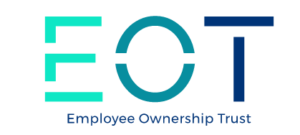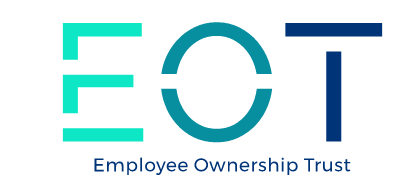EOT Impact On Supply Chain Dynamics
In the realm of production and manufacturing, the transformative influence of Employee Ownership Trusts (EOT) can’t be underestimated. The principal benefit of implementing an EOT supply chain is the shift in organisational dynamics. This facilitates a more synchronized and comprehensive approach to supply chain management, enhancing productivity and lessening potential operational mishaps.
EOT-owned firms experience increased collegiality and individual responsibility among stakeholders, which results in improved decision-making. Given that employees have vested interest and stake in the company, they strive for efficiency leading to direct positive impacts on the supply chain dynamics. Improved processes, less waste, and innovations engineered from within the company are common phenomenon.
Logistics Management In EOT Structures
Logistics management in EOT structures poses an innovative approach to manage goods and services within a company. As each employee becomes an integral part of decision-making, logistic processes are frequently evaluated and optimised. This dynamic management ensures smooth operations that are effective and time-efficient.
The EOT structure promotes transparency, fostering better communication channels between all company sectors. Therefore, logistics management is better able to predict and plan for potential issues. This anticipatory approach prevents costly disruptions, promoting smoother and more efficient logistics.
Real-World Supply Chain Stories Influenced By EOTs
There are numerous success stories of companies’ supply chains being transformed through EOTs, thereby creating efficient operations. Publix Super Markets, Inc., an employee-owned American supermarket chain, is a prime example of how EOTs have a profound influence on supply chain operations. With EOT, it managed to ensure maximum warehouse efficiency, reduce transit times, and make significant savings on delivery costs.
In an EOT model, motivation to optimise the supply chain isn’t derived from external investors but from the employees themselves. Container Store, another EOT, was able to implement a simplified and more accurate product tracking system reducing overheads and increasing transparency in their supply chain.
Strategies For Efficient Operations
EOT operations encourage collective decision-making power, fostering improved logistics and supply chain operations. High-impact strategies include prioritising efficient communication, promoting staff development, and encouraging innovation in operations. All these practices make EOTs an ideal business model for a robust supply chain network.
Engaging employees in continuous improvement initiatives and employing a problem-solving approach are key strategies for efficient operations. These strategies, coupled with the inherent motivation and understanding of each employee of the holistic company process, offer a competitive edge to organisations adopting EOT.
Predicting Future Logistics Trends Under EOTs
Looking into the future, we can expect a surge in EOT structures and the subsequent effect on logistics and supply chain operations. The participatory management framework and unique supply dynamics can provide a significant competitive difference. Automation and data-driven operations, two major trends in the logistics industry, can be seamlessly integrated into EOT structures as they encourage innovation and continuous improvement from within.
Few trends like increased sustainability awareness, more effective risk and cost management, anticipatory logistics, and transparency could very well become integral parts of the EOT supply chain. These evolving trends may shape the way businesses operate, enhancing the performance of the modern-day EOTs.
Conclusion
As we move towards a more inclusive and sustainable business future, the influence of EOTs on supply chain and logistics management is circumstantial. It promotes a harmonious interplay between efficient operations and employee satisfaction. The potential of EOTs to transform logistics and supply chain structures has far-reaching effects, promising a future of effective resource utilization, increased efficiencies, and superior operations.
Frequently Asked Questions (FAQ)
What is the impact of EOTs on supply chain dynamics?
How does the EOT structure affect logistics management?
Can you give real-world examples of supply chains influenced by EOTs?
What strategies can be used for efficient operations in an EOT structured organization?
What are the potential future trends in logistics under EOTs?
What are the benefits of EOTs to supply chain and logistics management?
Employee Ownership Trusts (EOTs)
Chartered Accountancy
Business Transitions to EOTs
Employee Engagement
Nigel Watson, a prominent consultant and author in the realm of Employee Ownership Trusts (EOTs) within the UK, boasts over twenty years of experience. Having embarked on his career as a chartered accountant, Nigel soon shifted his focus to the intricate world of employee ownership models. He has since played an instrumental role in guiding over 100 organizations, from private enterprises to public institutions, through the seamless transition to EOTs.
Read my full Bio
- How do EOTs influence supply chain and logistics? - October 19, 2023
- What role do shareholders play in EOTs? - October 19, 2023
- How do EOTs handle crisis communication and PR? - October 19, 2023


